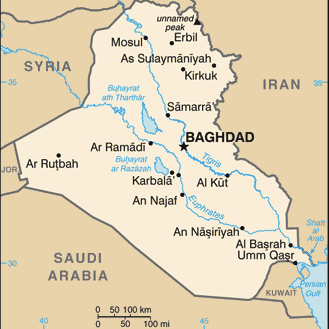You know the old expression: When one country’s green zone closes…
Iraqi Prime Minister Haider al-Abadi on Friday ordered security forces to grant civilians access to Baghdad’s fortified Green Zone in an apparent bid to stem mounting discontent over poor services and abuse of power.
Protected by countless checkpoints and concrete barriers, the 10-square-kilometre (4-square-mile) area on the bank of the Tigris River has become a symbol of the disconnect between Iraq’s leadership and its people – as well as wreaking havoc on traffic in the city of 7 million.
It once housed the headquarters of the US occupation and before that one of Saddam Hussein’s republican palaces, and is now the seat of government and of several Western embassies.
“The Green Zone is seen by the rest of the population as a protected area for VIPs,” said Middle East expert David Rigoulet-Roze in an interview with FRANCE 24. “The airport being nearby, officials can also get from their office to their plane without having to go through sensitive neighbourhoods.”
[…]
[The policy changes by PM Abadi] are also likely to raise alarm bells among Western diplomats concerned about security threats to embassies located in the Green Zone.
…Western diplomats try to find a new one to open.
Western nations, like the US, UK, France, Germany, Italy and Spain are banking that a new government of unity would ask them for help to stabilise Libya.
A European diplomat told me they envisioned establishing a “safety zone” in the capital that would protect foreign diplomatic missions using a foreign force.
Pretty sure that’s how that saying goes.




